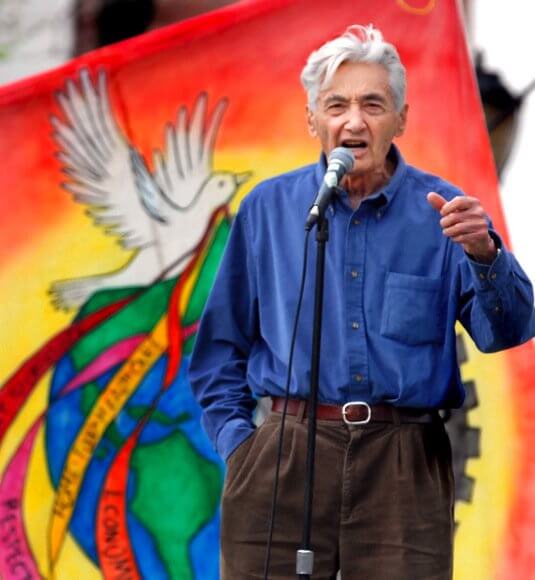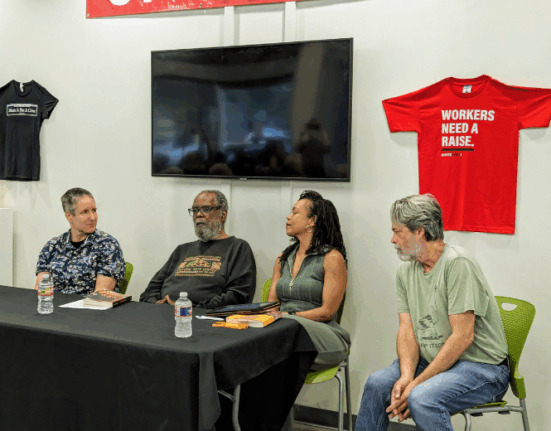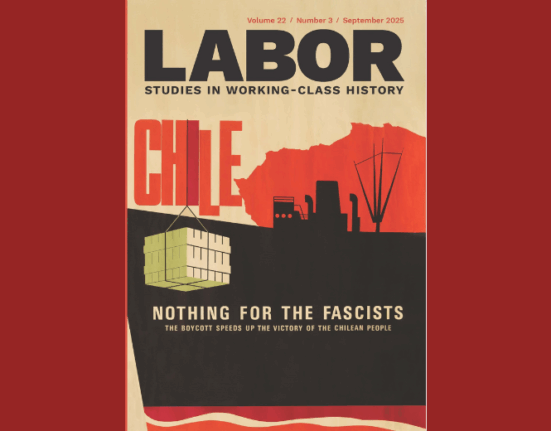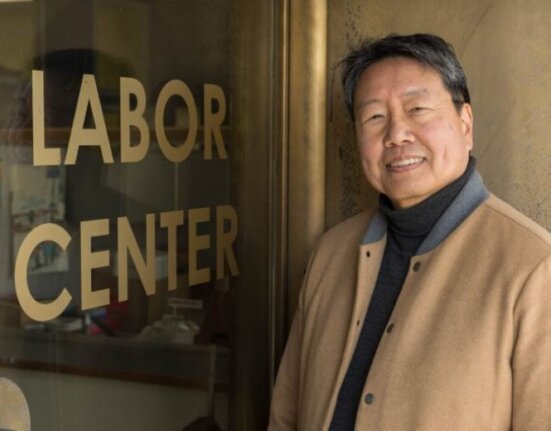Shortly after Howard Zinn’s death in January 2010, the Occupy movement took to the streets, many of its most vocal proponents brandishing his People’s History of the United States. They seized upon his work as both a legitimization of their own social criticisms within the American experience, and a claim to their legacy from the earlier movements of the 1960s and 1970s that shaped the book’s approach. Through the following national election, as the liberals and labor bureaucrats worked so tirelessly to talk most of the mobilizations out of the streets and into the polling places, criticisms of Zinn and his work escalated accordingly.
This hostility to Zinn coincides with the remarkably crude assault on Oliver Stone’s An Untold History of the United States coauthored with historian Peter J. Kuznick and screenwriter Matt Graham. The 2012 television series, appearing Showtime and now readily available on DVD, weathered a major effort to keep it off the air. The series reflected Stone’s preoccupation with presidents and personalities, and hardly aimed at anything as broad as a general history of the US. Instead, it offered a painfully honest portrayal of the history of the American presidency in the wider world, a gargantuan, even heroic achievement. I would have been astonished to see such a perspective at the height of the Cold War, much less in the post-9/11 world.

Critics of these projects have dismissed them scornfully for their failure to meet the standards of balanced scholarship. Yet historians have long made a distinction between popular works and scholarship. Projects covering a broad sweep of history and aimed at a readership and viewership far beyond the scholarly community work have far greater constraints on time and space than a specialized academic work. One wonders why pointing this out is even necessary within a community of learned people.
At this point, the vast public interest in the past is fed not only with an endless stream of fiction but several cable channels offering expensively produced “documentaries” about everything from bigfoot to haunted antiques. Larry the Cable Guy gets his own series, Only in America, celebrating our presumably unique national taste for things like cars and grilled meat. At its best, the wider market gets an understanding of history from journalists or others with the connections and experience to produce for it.
While academe seems generally willing to cede this audience, and rather than encourage efforts by academically-trained historians to address that broader public interest, the hierarchy of academe distinguishes between the plebeian bulk of the profession and the designated “public intellectual,” whose role seems primarily to place their ritual stamp of approval upon the mythologies or to condemn those who step outside the boundaries. Zinn’s real crime comes in speaking out of turn–though for someone with his perspective, that turn is never supposed to take place.
To be sure, Zinn’s People’s History made and never corrected some annoying factual mistakes. When I used the book in my history survey classes, the sharper suburban kids eager to disparage his relentless emphasis on institutionalized white supremacism seized upon things like his error in locating the Fort Pillow massacre in Kentucky rather than Tennessee. None of this had anything to do with his interpretation of slavery, abolition, the nature of the war, or the fact of Confederate brutality towards black prisoners.
Frankly, the criticisms made of Oliver Stone’s series have even less merit. In the presentation of ten hour-long programs aiming, in part, to demonstrate that the country has always had alternatives to the imperial course it has taken, An Untold History resurrects, for example, the long neglected figure of Henry A. Wallace, Franklin D Roosevelt’s vice president who advocated federal legislation to eliminate institutional racism, equality for women, and freedom of assembly in terms of working people and their organizations. Yet, one of the leading political historians of this generation attacked the project for failing to note that Wallace, later in life, bought into the logic of the Cold War. This is simply another version of the self-satisfied and privileged complaining about what has no bearing on the argument of the authors to deflect a perceived assault on their self-esteem.
Even more clearly, a designated “public intellectual” defends not only the privileges of that hierarchy, but the fundamental purpose of its existence.

And this is where Howard Zinn made his greatest mistake—and what a boner it was! The final chapter of his People’s History of the United States offers a wonderfully romantic and optimistic view of where he thought the America was heading. And a flattering one to his readers. Entitled “the Revolt of the Guards,” it portrayed a mass disaffection of the American intellectuals, whose function it was heading to rationalize and sustained the existing power structure. What Zinn believed was that those very intellectuals were on the verge of changing sides, and going over to the well-being of the mass of the American people. How wrong that prediction turned out to be.
In recent years, I have heard and read with astonishment and horror as the self-defined “progressives” embraced and defended the sort of unprecedented and blazingly reactionary innovations that would have horrified their predecessors. This starts with the arrogation of massive and unconstitutional authority the President of the United States and the minions in the basement of the White House now claim can be exercised lawfully, not only free from prosecution by from official inquiry by the rest of the government. This includes the right to kidnap, torture, and kill anybody on the planet they suspect– or are willing to say that they suspect—to be guilty not of any action but of having information argues they believe might become a threat to the security of the government. This universal potential hit list includes American citizens, three of whom have been murdered without even the fig leaf of due process. It includes the commensurate establishment of a massive new Homeland Security bureaucracy that makes Eisenhower’s military-industrial complex seem like the neighborhood National Guard Armory. Where have our designated “public intellectuals” been during all of this?
This also includes the institutional embrace of the madly suicidal market ideology that the unregulated drive for unlimited profit will create the best of all possible worlds. Both political parties, including the current president and his predecessor collaborated to ensure that those institutions of the rich and powerful deemed too big to fail would be actively subsidized by the largess of government. Both agree that unlimited bonuses and profit by those at the top should be sustained by the subversion of the American standard of living, the rights of labor, and the benefits of the very New Deal and Progressive reforms now deemed too great a burden. And from our “public intellectuals” the silence is deafening, save when an intellectual not so designated attempts to tell the truth.
Despite the economic collapse and a brief appearance of a feisty Occupy movement in hundreds of American communities, the ruling institutions seem determined not to reevaluate the assumptions that brought us to this point, or even to analyze the nature of that point we have reached. Our designated “public intellectuals” will most assuredly not speak out of turn to challenge these decisions.
This is not to speak, of course, of the systemic destruction of environment on which human civilization itself depends, and the deliberate and conscious pursuit of practices known to contribute greatly to global warming. While the great institutions of our society have studiously ignored the issue as much as possible, their apologists have remained dutifully silent.
Now that global warming has become impossible to ignore, the designated rationalizers who had spent years before the public ignoring or denying it have now come forward on how these issues might be addressed… with a more vigorous deference to the agenda of corporate and government institutions. So, too, the voices of those experts on the state of the economy who sounded no warning about the looming crisis are now heard most frequently and loudly. They insist that the current “recovery” requires bipartisan cooperation in deciding how deeply to slash social security, pensions, wages, and all those expensive luxuries like public education which are draining the hard-earned record-level bonuses of the boss class. Equally so, the apologists for every new unconstitutional innovation in the governments wars abroad and at home talk through the concentration camps, the torture, the unleashing of robotic terror on civilians to prattle about freedom and democracy.
For them the power structure that has managed our affairs so well, permitting us all the substantive input necessary to keep the system working well and fairly. And all will continue to go well if not disrupted by the chaos and din of the unwashed masses out there occupying and demanding things. Discussing the untold criminal history of our rulers or the people’s history of efforts to change things from below has no place in this agenda. To the contrary. The duty of those designated public intellectuals is to shout down such discussions, and stampede as many of their underlings in the academic pecking order to contribute to shouting them down.
As a group, Zinn’s “guards” never went into a revolt, are not now in revolt, and betray no sign that they ever will go into revolt. In hindsight, the very notion that they would belongs the middle and later 1970s, as new university programs and community nonprofits emerged to help address social discontent while minimizing substantive changes in the society. Trade union officials began referring to themselves more as a “movement,” not by moving anybody new—or even mobilizing their own numbers—but just by sending a few of their most trustworthy to the demonstration event . . . just to make sure “the crazies” don’t get the platform or that the TV news gets footage of red flags and radical slogans.
Such things embarrass the “reasonable” and “pragmatic” “progressive” in front of their “natural” allies among the politicos. In the end, who can address the global warming of the planet but the governments and corporations that are offering us increasingly “green” solutions to permit the continued use of fossil fuels and nuclear power? The possible discontent of the youngsters misled into the military—or economically conscripted into it—leaves us obligated to remain silent about the undeclared wars, including the secret ones that have outlived the Cold War once alleged to have justified them or the drones or the torture or the concentration camps or the massive new homeland security bureaucracy. The record levels of unemployment and misery among African Americans is off the table, so we the “realists” take heart in the abolition of “the ‘n’ word” and the election of a black politician to preside over the rule of the rich white men. Since record levels of profit, bonuses and celebratory gladiatorial games are part of human nature, criticisms of capitalism should be squelched by any means necessary.
In fact, as a group Howard Zinn’s “guards” are apt successors to the Greek chorus, offering the same time-honored wisdom that we accept as inevitable the fate the gods have prepared for us. And if Zinn or Stone or anyone else wants to speak out of turn about the realities in which the world’s people actually live, they may well be ignored or given the hemlock.
Substantive change will come, as it usually has, not from politicians, trade union officials, designated public intellectuals or guards of any sort, but, as experience shows, primarily from the demands imposed by mass movement of people with no vested interest in the inconsistencies and injustices of the existing order.








1 Comment
Comments are closed.